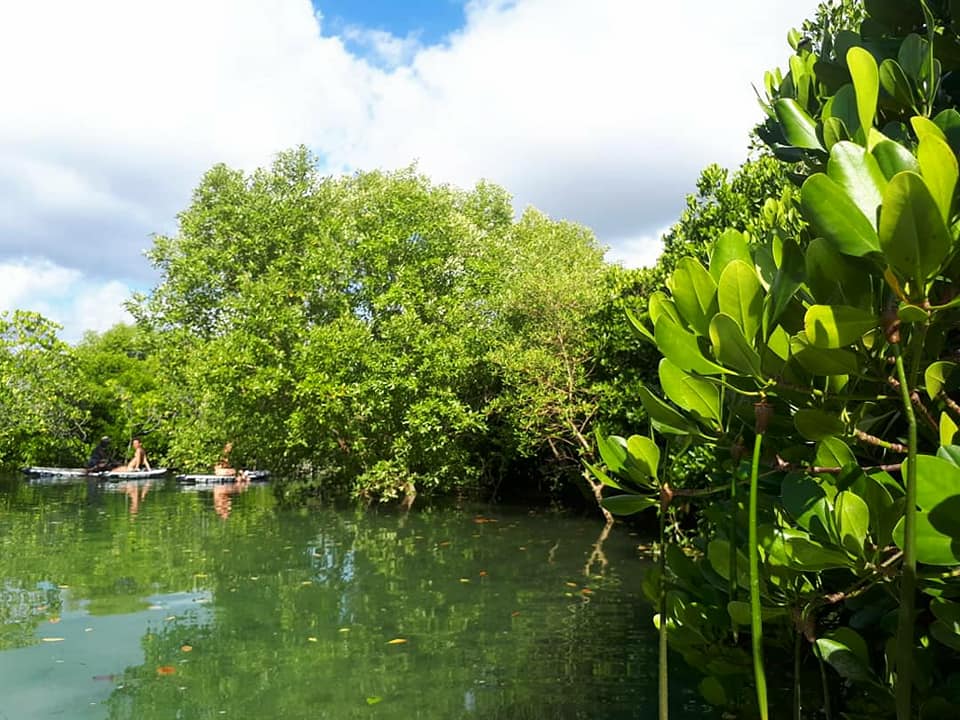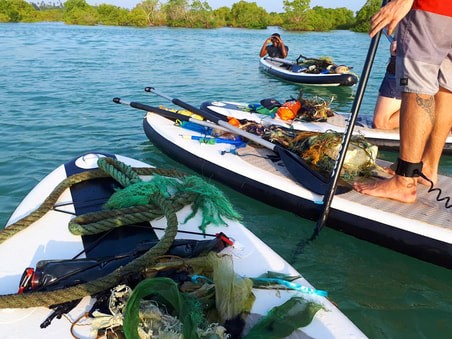By joining us on a tour you are not just coming on an unforgettable adventure,
you are also supporting the preservation and protection of an amazing natural habitat.
Here are the facts:
|
Mangroves trees are an indigenous species to tropical and subtropical regions, with approximately 70 identified species worldwide.
There are 10 different species of mangroves on Zanzibar, the most common among those are:
|
Mangrove forests are one of the most amazingly productive and biologically complex ecosystems on Earth.
- Mangrove forests create a natural barrier between land and sea
- They reduce the wave/wind impact from storms and tsunamis
- They are a safe home to many marine and land animals
- They are among the most carbon rich forests in the tropics, they take in carbon dioxide and store it in their roots and the soil
- They reduce the wave/wind impact from storms and tsunamis
- They are a safe home to many marine and land animals
- They are among the most carbon rich forests in the tropics, they take in carbon dioxide and store it in their roots and the soil
Despite their strategic importance, mangroves are under threat worldwide. Why?
- Population growth
- Cutting down trees for wood/charcoal
- Dumping grounds for trash
- Clearing mangroves for beach-side developments
- Ocean pollution
- Cutting down trees for wood/charcoal
- Dumping grounds for trash
- Clearing mangroves for beach-side developments
- Ocean pollution
|
Mangrove trees are an indigenous species to tropical as-well-as subtropical regions with approximately 70 identified species worldwide. They are a major contributor to the inter-tidal and marine environments. Mangrove trees are halophytes, plants that thrives in salty conditions and they have the ability to grow where no other tree can, thereby making significant contributions that benefit the coastal ecology.
Did you know mangrove forests around the world store more CO2 (Carbon Dioxide) than rain forests, up to 5 times more! And yet they are also more at risk of destruction than the rain forests. Mangrove forests are one of the most amazingly productive and biologically complex ecosystems on Earth, making up a large amount of the worlds' biodiversity. Birds roost in the canopy, shellfish attach themselves to the roots, reptiles like snakes and lizards find good hunting grounds; the roots provide nursery grounds for fish; the leaves and seeds are a food source for monkeys and bush-babies; tree-climbing crabs scuttle through the trees and flowers/seeds provide a nectar source for bats, butterflies and honeybees. Mangrove roots help fish, crabs, prawns, and other marine animals to hide from predators, while many birds nest in mangrove trees out of the reach of land predators. |
In Zanzibar mangrove wood is used for many things including house building, boat building, firewood and charcoal. Mangrove timbers make strong boats and fishing traps and seaweed farms also use mangrove poles. The timber is also used for tanning leather and making dyes – this used to be a very major industry; fewer people are involved now, but it is still carried out on a small scale. The fruits of the cannonball mangrove (xylocarpus granatum / mkomafi) are used as a traditional medicine to treat rashes and stomach pain.
Mangrove forests around the world also act as a natural defense against the elements of the sea. As waves come in to shore their force is calmed by the trees and by the time the water reaches land it's much calmer, resulting in far less land erosion or swamping. The disappearance of mangroves in Zanzibar could have devastating effects on land erosion levels and lead to rising sea levels. Put simply - no more mangroves = no more island! Patches and groves of mangroves can be found situated all around the island and it's where many of our tours are based. But this amazing natural environment is disappearing at an alarming rate! What little mangrove areas that are surviving are often subject to the negative effects of population growth (cutting trees for wood/charcoal, dumping grounds for trash, clearing mangroves for beach-side developments).
|
The bottom line:
We do not need to destroy mangroves to benefit economically.
|
We do need to start community-led initiatives to protect them. |
2 Winds Paddle Sports is raising awareness and taking action by:
|


